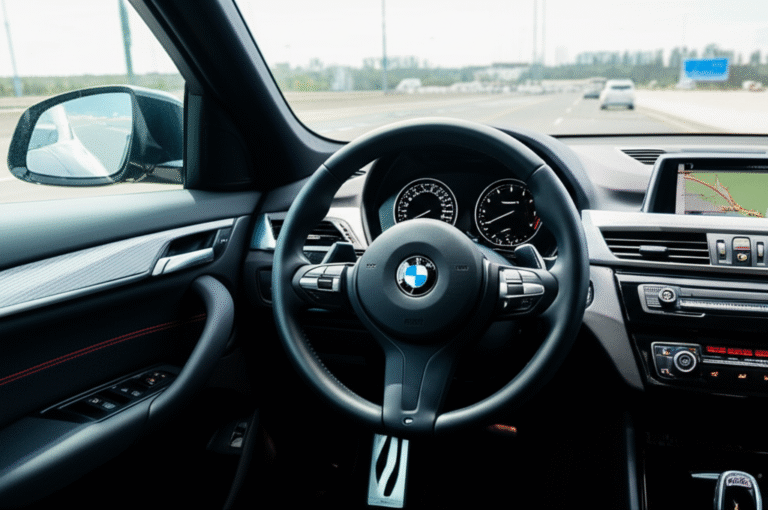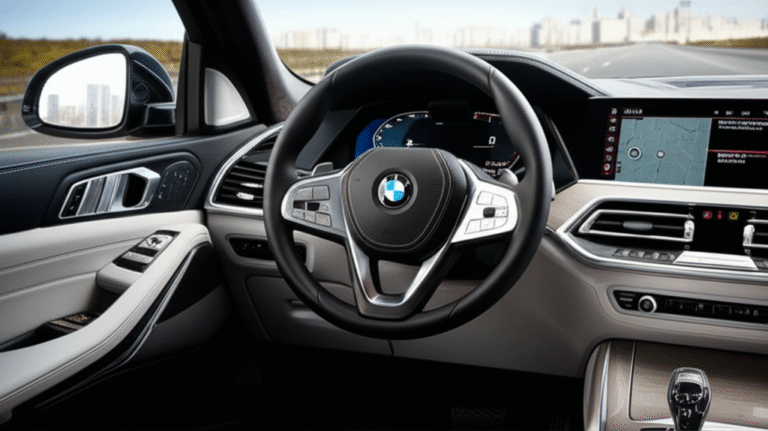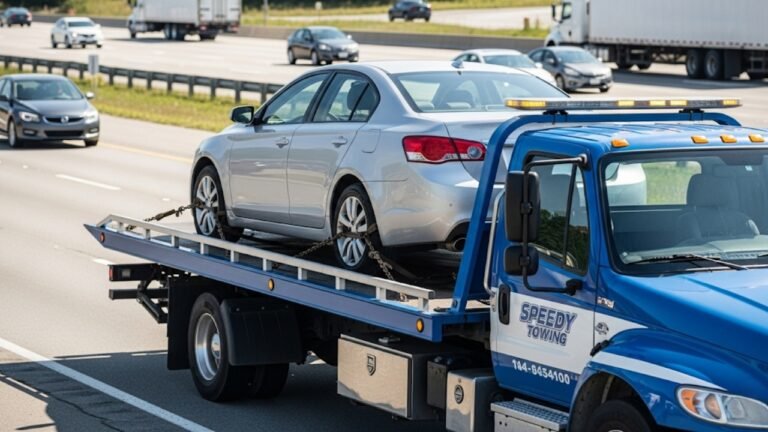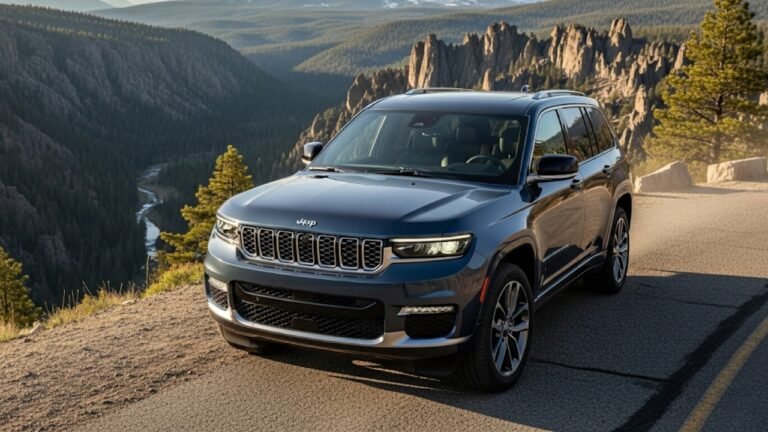Ultimate Guide to Choosing a Car with Towing Capacity
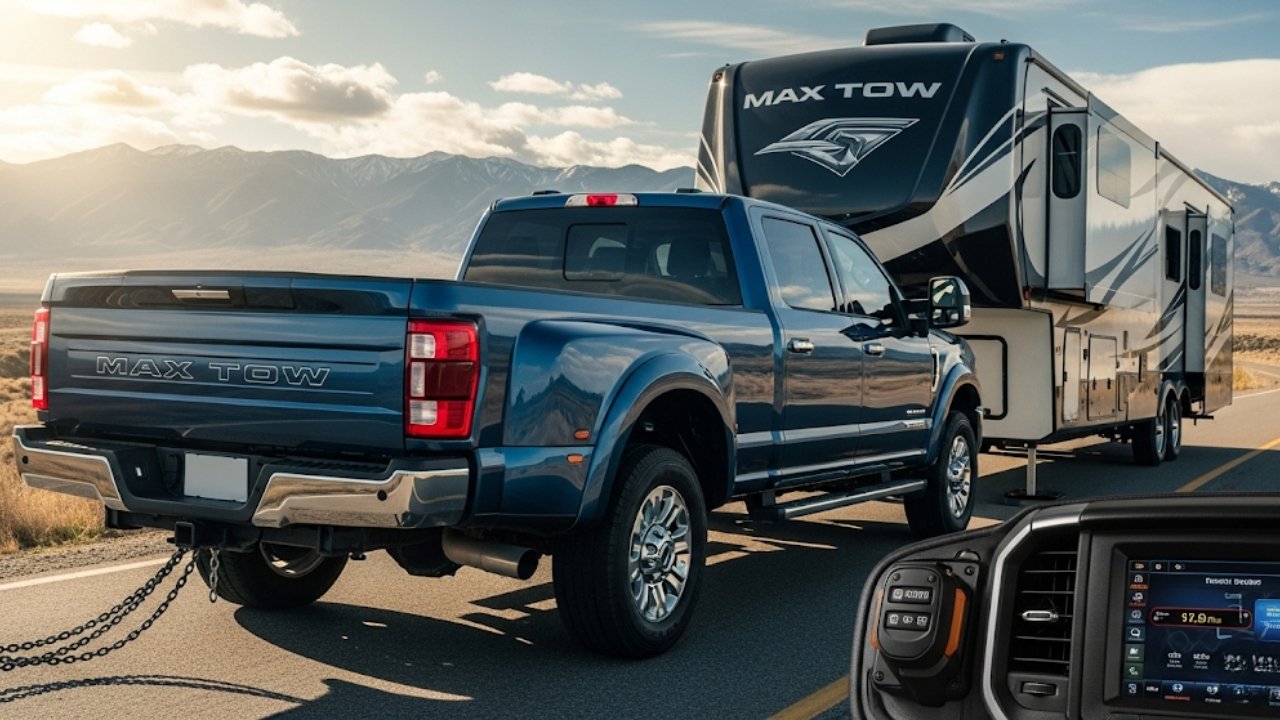
Let’s be real. Whether you’re planning a weekend road trip with a camper, towing your fishing boat to the lake, or moving across states with a trailer full of your life’s belongings—towing capacity matters. Choosing a car with towing capacity isn’t just about raw power. It’s about safety, reliability, and knowing your vehicle won’t bail on you halfway through a mountain pass.
I learned this the hard way. A few years ago, I hitched my old sedan to a U-Haul trailer for a spontaneous move. By the time I reached the first incline, the engine was howling like a wolf in winter. Long story short, I had to leave the trailer behind and call in favors from three friends with trucks. Lesson learned: never underestimate the importance of towing capacity.
In this article, I’ll walk you through everything you need to know about choosing a car with towing capacity, the best vehicles for the job, how to match your car to your towing needs, and even throw in some personal tips that could save your road trip—or your wallet.
What Is Towing Capacity & Why Should You Care?
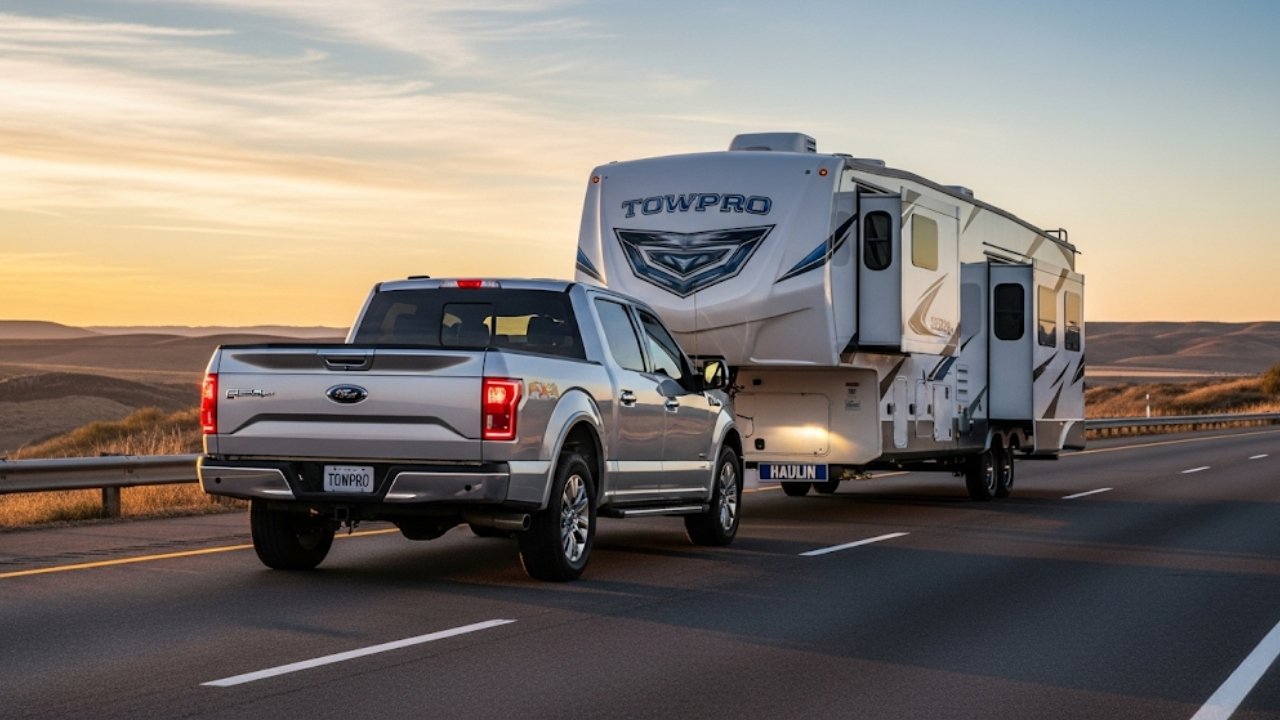
So how do manufacturers calculate it? It’s based on:
-
Engine horsepower and torque
-
Transmission strength
-
Suspension rating
-
Braking system performance
-
Frame durability
For most people, knowing these technical terms is overwhelming. So here’s a simpler way to look at it:
Towing capacity = the heaviest thing your car can pull behind it without breaking down or risking lives.
Top Types of Vehicles with High Towing Capacity
When someone says “car with towing capacity,” they usually mean SUVs, pickup trucks, or crossovers. Here’s a breakdown:
| Vehicle Type | Average Towing Capacity | Best Use Case |
|---|---|---|
| Full-Size Pickup | 10,000 – 13,000 lbs | Heavy-duty towing like RVs, trailers, boats |
| Midsize Pickup | 5,000 – 7,000 lbs | Small campers, ATVs, moderate loads |
| Full-Size SUV | 6,000 – 8,500 lbs | Family road trips with trailers |
| Midsize SUV | 3,500 – 5,000 lbs | Light loads like jet skis, small boats |
| Crossovers | 1,500 – 3,500 lbs | Minimal towing like small trailers or bikes |
If you’re towing anything heavier than a mattress and a microwave, you need a car built to tow.
What to Look for in a Car with Towing Capacity
Here’s where most people get confused. It’s not just about that big number in the brochure. You should consider:
-
Gross Vehicle Weight Rating (GVWR)
This includes the car’s weight plus passengers, cargo, and tongue weight. -
Gross Combined Weight Rating (GCWR)
Total weight of the car and whatever it’s towing. -
Tongue Weight Capacity
The downward force the trailer puts on the hitch. -
Transmission Cooling
Towing creates heat. A car with an added transmission cooler is a blessing. -
Tow Package
Look for vehicles with a built-in factory towing package. It typically includes stronger axles, better brakes, and reinforced frames.
Top 5 Cars with Towing Capacity in 2025 (So Far)
Here are some of the best cars with towing capacity that balance comfort, power, and practicality:
1. Ford F-150
-
Towing Capacity: Up to 13,500 lbs
-
Why It’s Great: Best-in-class for years. Multiple engine options, strong frame, and smart towing features like trailer backup assist.
2. Chevrolet Tahoe
-
Towing Capacity: 8,400 lbs
-
Why It’s Great: Spacious family SUV with muscle. It’s luxurious inside but a beast when towing a camper.
3. Toyota Tacoma
-
Towing Capacity: 6,800 lbs
-
Why It’s Great: Legendary reliability. Ideal for outdoor enthusiasts towing bikes, boats, or light trailers.
4. Jeep Grand Cherokee
-
Towing Capacity: 7,200 lbs
-
Why It’s Great: Perfect for off-roaders who also need towing capability.
5. Subaru Outback
-
Towing Capacity: 3,500 lbs
-
Why It’s Great: It’s technically a crossover, but with symmetrical AWD and rugged charm, it’s a good light-duty option.
Add-Ons and Mods That Boost Towing Performance
If your car is just shy of what you need, you might consider a few upgrades:
-
Weight Distribution Hitch – Improves balance, reducing sway and strain
-
Brake Controller – Helps manage trailer brakes from the cockpit
-
Heavy-Duty Radiator – Keeps your engine cool under stress
-
Towing Mirrors – Visibility is everything when towing long trailers
-
Air Suspension Kits – Keeps your rear end from sagging like an old mattress
But don’t try to cheat towing capacity. Mods can help with stability and control but won’t increase the official max weight rating.
Real-Life Towing Scenarios You Can Relate To
Let’s say you’re moving your college kid to a new city. You rent a 5×8 trailer. That’s roughly 2,000 lbs fully loaded. Your Honda CR-V can only tow 1,500 lbs. Big problem. But your neighbor’s Jeep Cherokee? No sweat.
Or picture a cross-country summer trip in a camper. You’re halfway into the Rockies and suddenly your crossover starts wheezing. You wish you had gotten that Ford F-150 with the tow package instead.
This is why understanding towing capacity isn’t just for mechanics or truck lovers—it’s for everyone who lives, moves, travels, and dreams big.
✅ Pros and Cons of Owning a Car with Towing Capacity
Pros:
-
Freedom to haul boats, trailers, RVs anytime
-
Better resale value
-
Usually comes with tougher suspension and drivetrain
-
Safer in off-road or emergency situations
Cons:
-
Lower fuel efficiency
-
Bigger, harder to park in urban areas
-
More expensive to maintain and insure
Frequently Asked Questions (FAQs)
1. Can a regular car tow a trailer?
Yes—but only very light trailers. Most standard sedans can only tow between 1,000 to 1,500 lbs. That might cover a small utility trailer or a lightweight cargo box. For anything heavier, it’s safer and smarter to go with a car with towing capacity designed for the task.
2. How do I know if my car can tow something safely?
Start by checking your owner’s manual. Look for the towing capacity, tongue weight limit, and any note about a required tow package. Always factor in the trailer’s weight plus whatever you load onto it. If it’s close to the max limit, you’re cutting it too close.
3. Do I need a special license to tow?
In most countries, a regular driver’s license covers small and mid-size trailers. However, some regions or states require a special endorsement if you’re towing anything above 10,000 lbs or operating a large vehicle-trailer combo. Always check local laws before you hit the road.
4. What’s the difference between payload and towing capacity?
Great question. Towing capacity is how much your vehicle can pull behind it. Payload capacity is how much weight it can carry inside—like passengers and cargo. Both are critical if you’re fully loading up for a trip.
5. Is 5,000 lbs of towing capacity enough?
Yes—for most casual towing needs. Boats, pop-up campers, small travel trailers, and even motorcycles can fall under this limit. But if you plan to tow something large—like a car hauler or full-size RV—look for 8,000 lbs or more.
6. Do hybrids or electric vehicles have towing capacity?
Some do! The Tesla Model X can tow up to 5,000 lbs. The Rivian R1T even boasts 11,000 lbs. Just be aware: EVs can lose range faster when towing heavy loads. Hybrids like the Toyota Highlander Hybrid also offer decent towing at around 3,500 lbs.
7. Does towing damage your vehicle?
Not if it’s within limits and done properly. Overloading, improper hitch setup, or skipping a transmission cooler can lead to damage. Always use the right vehicle for the load and follow the manufacturer’s instructions.
️ Real-World Use Cases of a Car with Towing Capacity
Let’s paint some relatable scenes.
Family Trip to the Mountains
You’ve got four kids, two bikes, a cargo box, and a small camper. Your midsize SUV pulls it all effortlessly thanks to its towing package. Now, you can enjoy the view instead of worrying about overheated engines or brake fade on downhill slopes.
Weekend Boat Getaway
Your friend’s boat weighs 3,200 lbs, and your Jeep Grand Cherokee with a 7,200-lb rating makes the launch smooth. You pull into the boat ramp like a pro while someone in a minivan next to you is struggling with burning brakes and a dented bumper.
Moving Day
Instead of renting a box truck, you hook a trailer to your truck. Not only do you save on rental fees, but you also get the freedom to move at your own pace—no need to return anything before 6 PM sharp.
️ Towing Equipment for Work
Maybe you’re a contractor hauling generators, cement mixers, or mobile sheds. A car with towing capacity isn’t a luxury—it’s a lifeline for your business.
⚖️ Comparing Top Models: Towing Specs Table
| Model | Max Towing Capacity | Engine Type | Tow Package Available | Fuel Economy |
|---|---|---|---|---|
| Ford F-150 | 13,500 lbs | V6 Turbo / V8 | Yes | 18-24 mpg |
| Chevy Tahoe | 8,400 lbs | V8 | Yes | 16-21 mpg |
| Toyota Tacoma | 6,800 lbs | V6 | Yes | 20-23 mpg |
| Jeep Grand Cherokee | 7,200 lbs | V6 / V8 | Yes | 18-26 mpg |
| Subaru Outback | 3,500 lbs | 4-Cyl | Limited | 26-33 mpg |
Each vehicle in this list has a strong reputation for reliability, road comfort, and robust towing ability. But which one suits you best depends on your lifestyle, load, and budget.
Story from the Road: “The Time My Boat Almost Didn’t Make It”
A buddy of mine once tried towing his 3,800-lb fishing boat with a Nissan Rogue. It had a towing limit of 1,500 lbs. The result? The transmission overheated halfway, and we had to call roadside assistance. Lesson: Just because it hitches, doesn’t mean it’s safe. Now, he drives a Ford Explorer with a factory tow package. The boat rides smooth, and he even brags about his “tow swagger.”
Common Towing Mistakes to Avoid
-
Ignoring Gross Combined Weight: That includes everything—passengers, gear, trailer, and fuel.
-
Not Using Trailer Brakes: Heavy trailers need their own brakes. Always use a brake controller.
-
Forgetting the Transmission Cooler: Heat is the enemy of performance. Get a cooler if you’re towing long distance.
-
Using Inadequate Hitches: Match the hitch class to your trailer’s weight.
-
Improper Load Distribution: Put 60% of the weight in the front half of the trailer. This prevents sway.
Final Thoughts: How to Pick the Right Car with Towing Capacity
Choosing a car with towing capacity isn’t just about picking a truck with the biggest engine. It’s about balance—between power and fuel economy, load and comfort, and most of all, safety and confidence.
If you’re towing light a few times a year, a midsize SUV might be all you need. But if you’re towing every weekend or hauling heavy loads for work, a full-size pickup is a worthy investment.
Remember, buying a vehicle with towing capabilities opens up new adventures: road trips, boats, campers, moving days, and a sense of freedom that can’t be described in horsepower.

